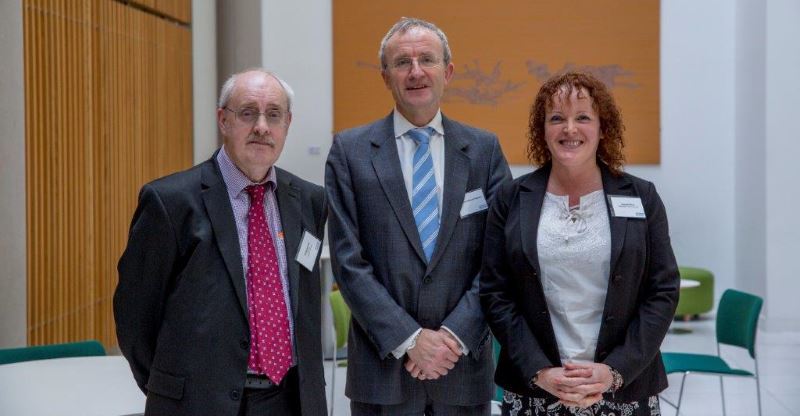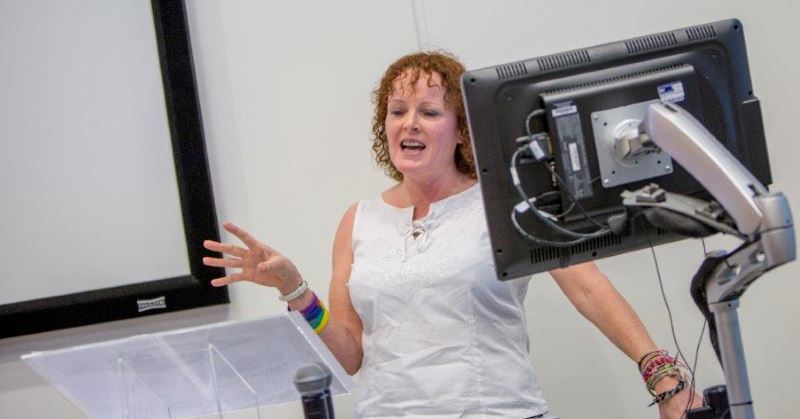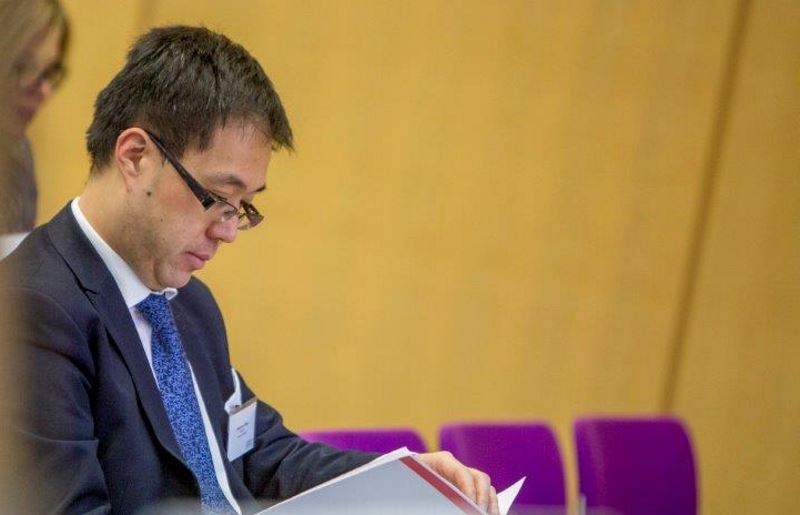The second annual conference of the Forum, which was supported by CIBL (the Centre for Business and Insolvency Law) and Nottingham Law School, attracted over thirty registered delegates including academics from the UK and overseas, solicitors, barristers, representatives of HMRC and publishers, and students. It is an integral part of the Forum's mission.

The opening address was given by the Hon. Mr Justice Twomey, judge of the Irish High Court and formerly a specialist partnership lawyer and lecturer. He discussed a number of areas of difference between Irish and UK LLPs, in particular the restriction of Irish LLPs to law firms, and the absence of disclosure requirements cf UK LLPs which have to disclose accounts and other information. He concluded by highlighting a number of interesting and entertaining cases, including those involving the Beatles, Apple, and the Smiths.
The keynote speaker was Professor David Milman (Lancaster University), who examined the importation of partnership principles of good faith, based on equity, into company law through the judicial construct of the 'quasi partnership'. He noted the usefulness of this approach to litigants seeking to bring an unfair prejudice petition under s994 of the Companies Act 2006, but also the reluctance of the courts to import such principles, particularly where (as is increasingly common) there are shareholder agreements or other company documents to which those principles would be contrary.

In the insolvency session, Elspeth Berry (Reader in Law, Nottingham Trent University) and Professor Rebecca Parry (Nottingham Trent University) discussed the difficulties of adapting corporate insolvency legislation to partnerships and LLP, given the very significant differences between companies and partnerships and, to a lesser extent, between companies and LLPs. Elspeth suggested that the result was that the insolvent partnership legislation governing winding up and joint bankruptcy was unfit for purpose and should be repealed, given that the Partnership Act enables informal winding up and partners have personal liability for partnership debts in any event. In contrast, insolvent LLP legislation should be retained (albeit with considerable revisions) in order to protect creditors. In a separate paper, Professor Parry discussed the corporate insolvency reforms recently proposed by the government, and whether they would shift the balance of power in an insolvency, including through an increased role for directors and a reduced role for insolvency practitioners.

In the practitioner session, Jeremy Callman (Barrister, Ten Old Square, Lincolns Inn, London) discussed issues arising on partners and LLP member exits, including the differences between expulsion and compulsory retirement, and their legal requirements and tactical advantages and disadvantages. He also considered the impact of the Braganza judgment, which potentially introduces a Wednesbury-style unreasonableness test into judicial examination of partnership and LLP decision making, both in terms of the procedure followed to reach a decision, and the nature of that decision. Stephen Chan (Partner, Harper Macleod LLP, Edinburgh) then presented an examination of the key differences between Scottish and English partnerships, noting that the separate legal personality of Scottish partnerships may not be continuing legal personality but that the concept of "contracts with the house" may overcome the lack of perpetual succession. He also outlined the very different insolvency procedures applicable to Scottish partnerships, and discussed the transmission presumption whereby if a new firm takes over the business of an old firm and certain conditions are met, it will take over the liabilities of the old firm.

In the penultimate session, Gary Wilson (Reader in Law, Nottingham Trent University) examined the predecessor to the Partnership Act 1890, Bovill's Act 1865, and the confusion surrounding its enactment. He noted that there was confusion both as to whether the Act conferred limited liability on partners (something which in fact only arose as a result of the Limited Partnerships Act 1907); and as to whether a change in the law was intended, given that although Bovill's Act provided that a lender who received in return a share of profits did not automatically thereby become a partner (as the Partnership Act now provides), the House of Lords in 1860 had already decided much the same in Cox v Hickman.
In the final session, delegates were treated to a change of focus with a paper by Richard Smith (freelance journalist with expertise in investigating limited partnerships for media outlets including the BBC and the Scottish Herald). He explained the abuse of partnerships, and LLPs, in bank fraud and various 'laundromat' money laundering scandals across Europe. He noted that recent legislation requiring Scottish limited partnerships to publish details of Persons with Significant Control (PSC) over them had led to an increase in the abuse of English and Northern Irish partnerships. Finally, he outlined the proposals put forward by the government in December 2018 to tackle these problems, noting that they were likely to be ineffective because they did not address the problems of minimal disclosure of information about firms or partners, or the under-resourcing of Companies House and HMRC.

The round table discussion which concluded the event considered:
- It was essential to have a regular Conference.The website alone was not an adequate substitute for academics and practitioners being able to meet and discuss relevant issues.
- The Conference should take place annually or at least 18-monthly, but two-yearly would be better than nothing.
- The Conference should focus on partnerships, LLPs and (US-style) LLCs and any similar types of business organisation, as that is its unique selling point - whereas there are many other general business-or company-themed conferences.
- The Conference should continue to include practitioner speakers.
- The ideal would be 6 papers, split equally between academics and practitioners.
- Other possible speakers or delegates who should be contacted included partnership tax advisers, partnership accountants and partnership mediators.
- The Association of Partnership Practitioners(APP) should be approached to see if it would be interested in participating in a joint conference, in order to increase practitioner participation.
- Other possible sponsors who could be approached included publishers, specialist law firms or accountants, or local law firms.
- September was identified as another possible time of year to hold the conference(eg September 2020) if Easter or Christmas was not possible(and might be more attractive than a winter conference given daylight hours, weather and the timing of the CPD year for Scottish solicitors). NB Conference feedback forms indicated that for some, Christmas was a good time for the conference due to being less busy at work, particularly cf Easter.
Links to presentation slides